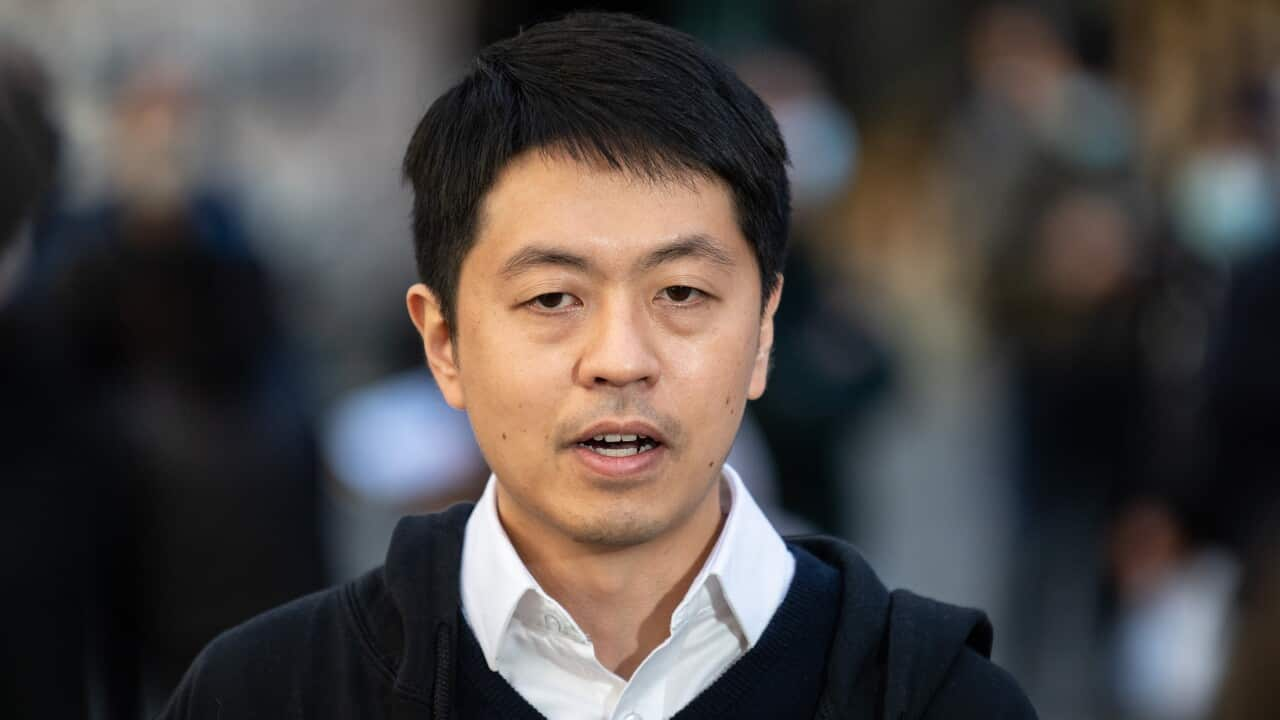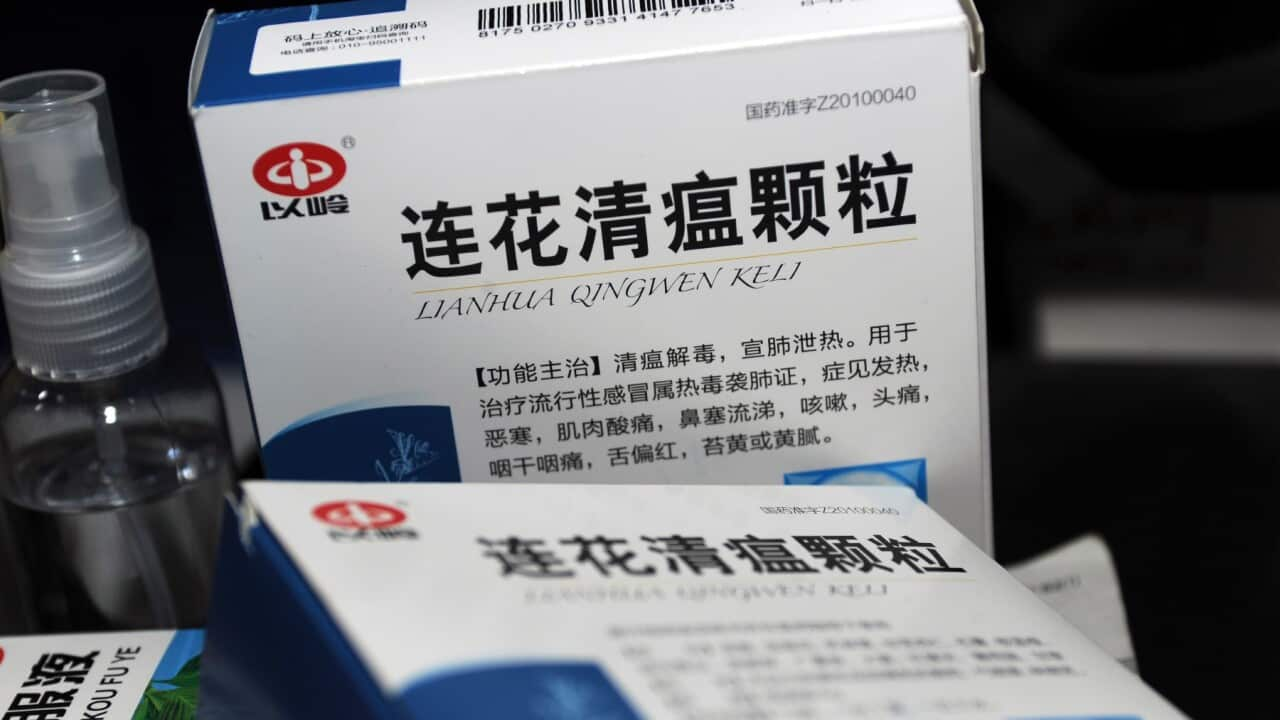Highlights
- Ted Hui arrived in Australia a year ago as a Hong Kong pro-democracy politician in exile
- He faces several charges if he returns to Hong Kong stemming from his opposition to Beijing’s National Security Law
- He was one of the last dissenting voices in the Hong Kong Legislative Council
Ted Hui couldn’t permanently leave his homeland without putting up a high-profile fight.
Over two years ago before seeking refuge in Australia, the politician played a prominent role in the island’s pro-democracy movement, both on the streets and in the Legislative Council.
Dissent was soon flattened due to the June 2020 enactment of Beijing’s National Security Law, which prohibits separatism, subversion, terrorism and colluding with foreign forces.
Despite concerns that the Chinese Communist Party is now dissidents living in exile, Mr Hui remains unsilenced.  It will be one year on March 9 since he and his family used their “last option” and settled in Adelaide, a base where he can continuously fight for the freedom of Hong Kong without risking fines or jail.
It will be one year on March 9 since he and his family used their “last option” and settled in Adelaide, a base where he can continuously fight for the freedom of Hong Kong without risking fines or jail.

Protesters listen as former Hong Kong politician Ted Hui speaks during a June 2021 rally to show concern for the increasing Chinese influence in Australia. Source: AAP Image/James Gourley
As China drives out “non-patriots” like him, Mr Hui tells SBS Chinese how he plans to continue to battle for Hong Kong’s democracy from afar.
An emerging role for the exiled former lawmaker
When Mr Hui and his family were granted a 12-month tourist visa last year, he became the first Hong Kong politician to be granted a travel exemption by the Australian government during the pandemic.
That has now been replaced by bridging visas for the family allowing Mr Hui to work and study.
The Hong Kong law graduate tells SBS Chinese that he is planning to study so that he can be “useful” and help Hong Kongers migrate to Australia.
“I’m currently in discussions with the Australian government on how to keep me here,” Mr Hui said, adding that obtaining an asylum visa is not out of the question.
“It’s a diplomatic issue so I wouldn’t rule that possibility out.” Mr Hui says there's a chance he will apply for Australian permanent residency for his family to avoid the need to renew visas at the Chinese consulate.
Mr Hui says there's a chance he will apply for Australian permanent residency for his family to avoid the need to renew visas at the Chinese consulate.

Ted Hui struggles with security staff at Legislative Council after causing disruptions to a debate on a law punishing disrespect for China’s national anthem. Source: AP
“I won’t take this high risk,” he said.
SBS Chinese spoke to the Department of Home Affairs which said it could not comment on Mr Hui or other individual cases.
Not worried about election result impacting Hong Kongers’ freedoms
Aware of the upcoming federal election, Mr Hui says he is not concerned about how the result will impact Australia’s immigration policy, particularly prioritised migration pathways for Hong Kong nationals and holders of a British National Overseas (BNO) passport.
“I’m not worried the upcoming election will impact the policy on Hong Kong,” he says.
Instead, Mr Hui is focussed on lobbying for visa streams for young Hong Kong protesters who do not have the economic means, educational qualifications or BNO passport to migrate to Australia.
The most persecuted and powerless in Hong Kong are the young protesters who cannot benefit from these measures.
Asked if he intended on entering Australian politics in the short-term, he said: “I have no ambition or interest in running for election in Australia.”
But Mr Hui does not rule out the possibility after five or six years once he can be more committed to the country.
“My biggest goal right now is to promote democracy and freedom in Hong Kong,” he said.
Doing more from overseas
Since arriving from Hong Kong, Mr Hui has been encouraging the Australian government to reduce its dependence on trade with China and to expand measures to assist Hong Kongers leaving the island for Australia.
Mr Hui had been advocating for Magnitsky-style laws that were passed in the Senate and House of Representatives in December, which give the Australian government the right to impose financial sanctions on individuals or organisations that violate human rights and/or conduct cyberattacks.
Despite campaigning from abroad, he says he’s not completely out of the inner Hong Kong loop.
Mr Hui is still in contact with former pro-democracy party members who haven’t fled and remain in Hong Kong.
He tells SBS Chinese he keeps these calls short and not too specific, knowing too well the likelihood that such conversations with political allies will be tapped, with participants then potentially facing conviction of offences under the National Security Law.
“We’re afraid that content from our conversations could be used as evidence in court,” Mr Hui said.
Hong Kong’s Chief Executive Carrie Lam defends the law, maintaining it brought the territory “back on the right track” following months of street protests in 2019 and was necessary to restore stability in society.
But Mr Hui says Beijing’s measures excessively restrict Hong Konger’s rights and freedoms. His personal conviction to help those on the ground back in Hong Kong is stronger knowing some people live in fear of being arrested under the law.
His personal conviction to help those on the ground back in Hong Kong is stronger knowing some people live in fear of being arrested under the law.

More than 100 pro-democracy political party members and media practitioners have been arrested since the implementation of the National Security Law. Source: AP Photo/Kin Cheung
“I can’t live in peace in a free country and do nothing,” he said.
Mr Hui tells dissenters and civilians wanting to flee Hong Kong to wait “patiently” for a changing situation while encouraging Hong Kong diasporas around the world to gather and speak out for those left behind.
Their efforts, he believes, will not be in vain.
“One day, Hong Kongers overseas will be able to return with great honour and freedom,” he said.
“We will no longer be in exile. There will no longer be any separation. We will call Hong Kong home again.”


